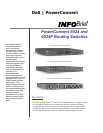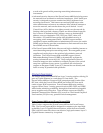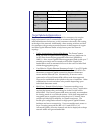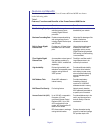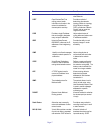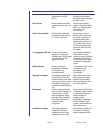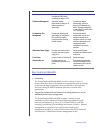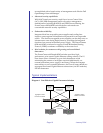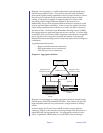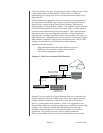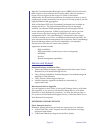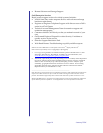
Page 7 January 2004
Feature Function Benefit
routing for small and medium
sized networks.
OSPF Open Shortest Path First
routing protocol sends
information to all nodes in the
network to calculate the
shortest path to each hop.
Provides a method of
determining the networks
topology, flexible in a topology
that is subject to changes.
OSPF provides less “Network
Chatter” and can scale into
larger environments.
CIDR Provides a single IP address
that can be used to designate
many unique IP addresses.
Helps reduce the size of
routing tables and makes more
IP addresses available.
IRDP Helps the PowerConnect
6024/6024F to discover the IP
addresses of their neighboring
routers.
Provides the ability to track
dynamic changes in router
availability.
ICMP Used for out-of-band messages
related to network operation or
malfunction.
Helps routing devices to
communicate with each other
to determine the network
status.
VRRP Virtual Router Redundancy
Protocol is used to replicate
routing tables between routers.
Defines a master and backup
routers to maintain a copy of
the networks routing table. The
backup router is elected if the
master is no longer available.
ARP
A TCP/IP protocol used to
convert an IP address into a
physical address.
Allows a routing device to
determine the physical
addresses of other devices
connected to it.
IGMP The standard protocol for
Multicast traffic.
The protocol allows a host to
inform its local router, using
Host Membership Reports, that
it wants to receive messages
addressed to a specific
multicast group.
DVMRP
Distance Vector Multicast
Routing protocol.
Allows the network to advertise
the shortest-path (as counted
in hops).
Static Routes
Allows the user to manually
enter static addresses of other
network routes.
Provides an easy method to
recording known hops in small
or static networks.
802.1Q VLAN Virtual LANs combine a number
of ports into distinct, separated
sub-networks. GVRP allows for
Allows for limitation of
broadcast domains as well as
improved security. GVRP



